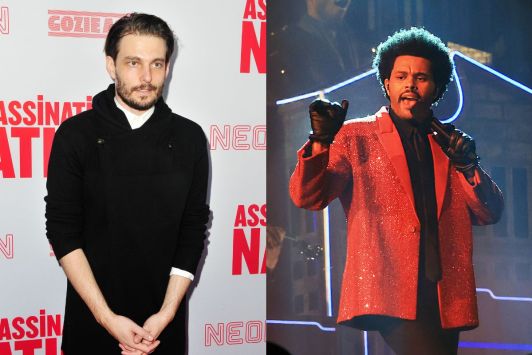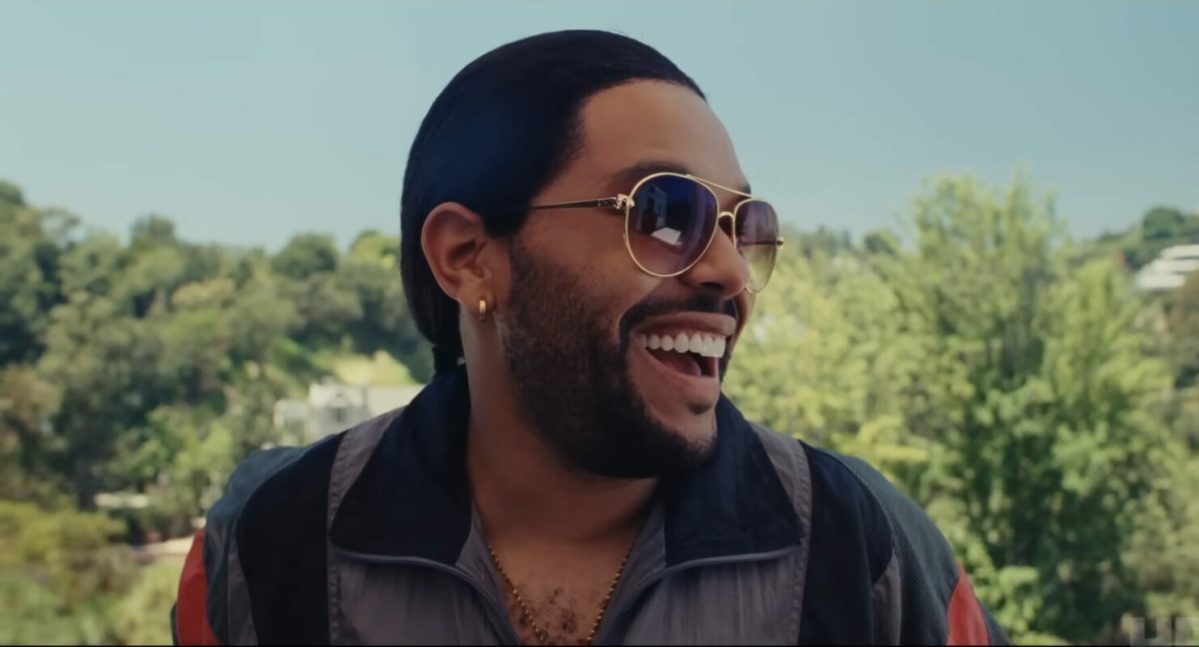On July 17, HBO dropped the trailer for the series The Idol, starring Lily Rose-Depp and Abel Tesfaye (a.k.a. The Weeknd). Every visual choice in this teaser is backed up by the text that reads “the sleaziest love story in all of Hollywood.” The story follows a young pop singer who’s seduced by an L.A. club owner-turned-cult leader. Everything is about selling sex, both to the potential audience of this show and to the characters within the work. Unfortunately and unsurprisingly, this project was headed by what the teaser describes as “the sick & twisted minds of” Sam Levinson (creative behind Euphoria and Malcolm & Marie) and Tesfaye.
Before getting into the issues with Levinson, let’s talk about his role within this project. He, Reza Fahim, and Tesfaye are the main architects of this story. According to Deadline, Amy Seimetz directed four to five episodes before splitting from the project due to creative differences three months ago. Tesfaye felt like the show was giving the story too much of a “female perspective,” according to Deadline’s unnamed sources, with more focus on Rose-Depp’s character than his own. She is staying on as the lead while the show adjusts its approach, but a leading actress, Suzanna Son (Red Rocket), and the female director, Seimetz, left. That’s where Levinson stepped up to direct.
While I haven’t yet seen the show, it’s really alarming that this is the reason the only woman that had on-set creative authority left the project. Actresses can sometimes have some, but the power dynamics between the cast and director, especially with a team like this, are very off unless you have The Weeknd-level clout.
A good execution of the idea behind The Idol would get us to think about the exploitation of real or fictional women more critically, outside of the mainstream narrative of upholding rape culture, so I don’t understand what possible excuse Tesfaye—and whoever else agreed with this perspective during the overhaul—could have for giving his character, an abuser, more dominance in the narrative.
Resumes of red flags

To circle back to the aforementioned red flags, Tesfaye’s own self-reflective work that tackles dark subject matter like loss and struggling with his own addiction alone could make for needed humanizing on the show. However, his insistence of pulling back on the narrative of the exploitation of an up-and-coming pop star in favor of his own character’s perspective is alarming—even more so when two women departed from the project due to this.
Then, there’s Levinson. After the events of HBO’s Euphoria season two that solidified existing quiet but persistent criticism of the show, it’s a bad look that he is even involved with The Idol, let alone directing. How many times does this man have to head edgy shows that sexualize barely legal, thin, young women (The Idol and Euphoria aren’t the only two) before we look at it as a pattern? His own battles with drugs, like Tesfaye and his characters, makes him uniquely experienced to write these stories (possibly even a cathartic experience for him), and yet, his relationship with the women on and off camera leaves much to be desired.
Another concern about this project relates to one of his more widely panned works. After the release of Malcolm & Marie, Levinson (a white man) faced criticism for using his two Black leads to criticize a female film critic and a Black director (Barry Jenkins). With the sexualization (through camera and storytelling framing, not just because people are having sex) of Levinson’s characters more widely discussed after the last season of Euphoria, I fear that The Idol may also includes some nasty clapbacks in that vein.
To be clear, Levinson was always involved as a co-creator and carried creative control. However, directors (and other positions, like editors) can adjust the framing of a scene while on set. Two directors with the same cast, crew, set, script, etc. can give you two different movies. While true crime and docu-series may lead us to believe that victims’ stories permeate as the mainstream narrative and we, as a society, are more empathetic because of it, I implore you to reflect on the statistics of how common sexual abuse is and how one woman became a TikTok meme for taking abuse allegations to court.
(featured image: screencap HBO Max)
—The Mary Sue has a strict comment policy that forbids, but is not limited to, personal insults toward anyone, hate speech, and trolling.—










Published: Jul 25, 2022 03:09 pm